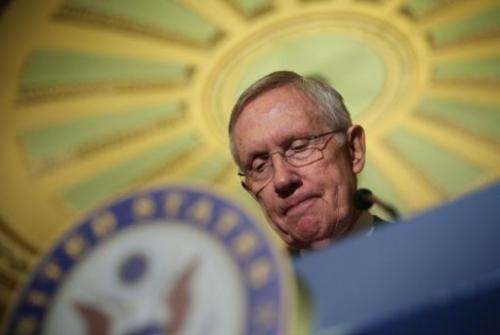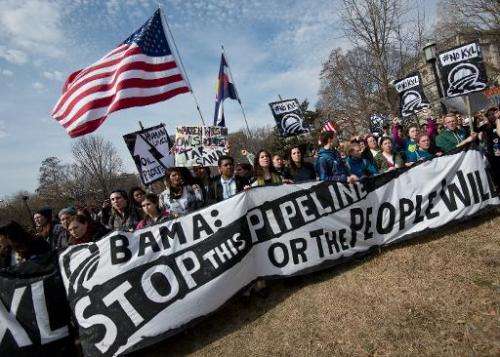Keystone pipeline passes one US legislative hurdle

The US House of Representatives on Friday approved construction of the controversial Keystone XL pipeline to bring oil from Canada, but the measure could still find itself blocked in the Senate.
The project, which would bring oil from tar sands in Alberta province to US refineries, passed the Republican-controlled House by 252 votes to 161, with 31 Democrats supporting the measure.
It is the ninth time the chamber has passed pro-Keystone legislation, but the pipeline still faces resistance in the Senate, where Democrats will retain a majority until the new Congress in January.
"Hopefully, this ninth vote is the charm and the Senate and president will finally agree that after six years it's time to say yes to energy and yes to jobs," energy and commerce committee chairman Fred Upton said.
When the previous measures passed, Senate Majority Leader Harry Reid refused to allow a vote on his side of the US Capitol, angering Republicans and some Democrats who back the $5.3 billion plan.
But, after last week's midterm election drubbing suffered by Democrats, Reid relented and allowed a Keystone vote in his chamber as early as next Tuesday.
The GOP claims that once the new Congress convenes in January, it will have sufficient Keystone support in the Senate to reach a 60-vote threshold and overcome any blocking tactics.
It remains unclear whether enough Democrats will side with the current Senate's 45 Republicans next week to ram the measure through immediately.

During the debate, Republicans argued that Keystone will create 40,000 temporary construction jobs and insisted on the high safety standards of the project and its benefits for the US economy.
But Democrats are wary of the pipeline's environmental impact, and congressman Steve Cohen noted that a 2010 tar sands oil spill in Michigan cost $1.2 billion and years of clean-up.
"That is where the permanent jobs are going to be created, in cleaning up the spillage, and that is not the kind of jobs the American people want," Cohen said.
If Keystone clears Congress, it would go to President Barack Obama's desk.
The White House has not clearly stated what the president would do, although Obama said Friday in Myanmar that he wants the process to play out in the courts.
Part of the proposed pipeline route goes through the state of Nebraska, where a judge is currently considering litigation on Keystone's construction.
© 2014 AFP




















